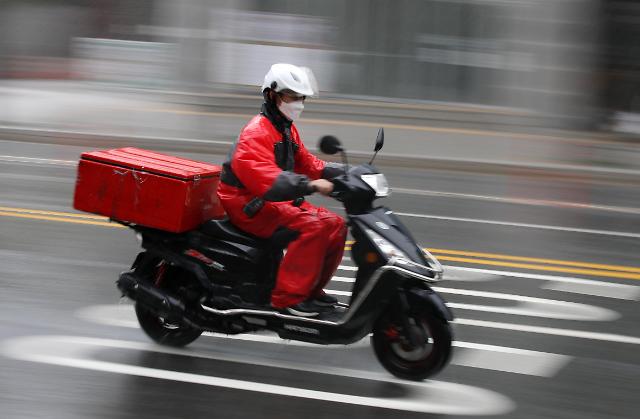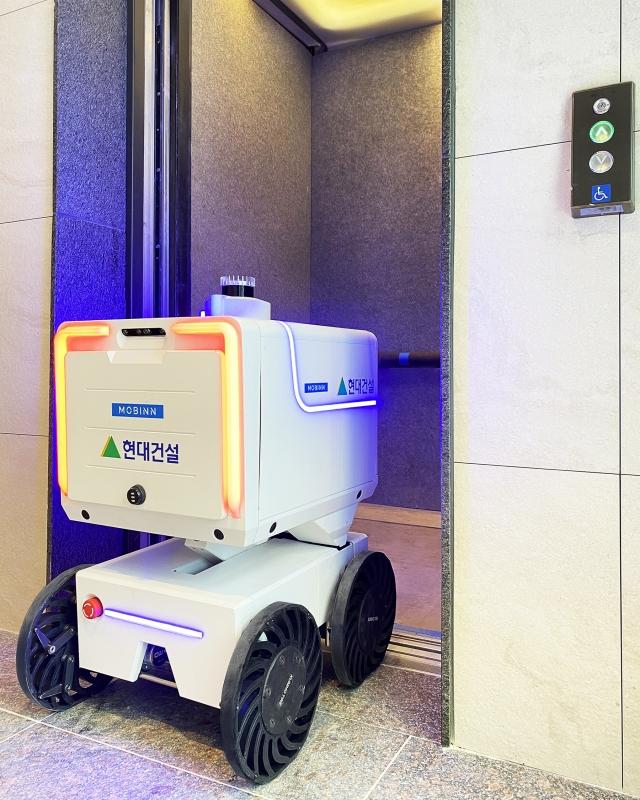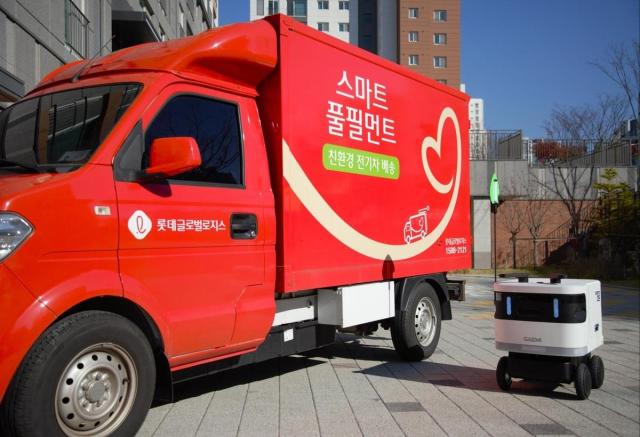
[Yonhap Photo]
Currently, there are about 30,000 food delivery workers using gasoline engine motorbikes and some 30,000 parcel deliverymen using diesel-powered trucks in Seoul. Motorbikes and trucks emit about 20 percent of carbon dioxide released in Seoul.
Seoul said in a statement on October 29 that the city government signed a cooperation agreement with the Ministry of Environment, major logistics companies, electric motorbike retailers, mobility service operators, and deliverymen's unions to accelerate the adoption of electric vehicles (EVs).
Electric motorbikes were first introduced in South Korea about 10 years ago but they have been shunned by deliverymen because of their short travel distance. An ordinary deliveryman covers more than 100 kilometers (62 miles) a day but electric bikes could only travel about 50km per charge.
Seoul will work with various companies including KT Linkus, a battery-sharing mobility platform operator wing of South Korea's biggest telecom company KT, to develop solutions for solving electric bikes' battery problems. KT Linkus is testing battery depots near central Seoul where the owners of replaceable battery pack-powered motorbikes can return a used battery pack and pick up a fully-charged pack in less than a minute.
The city government said will cooperate with logistics companies so that logistics service operators purchase only electric trucks in 2022. Subsidies will be provided for motorbike deliverymen. Seoul predicted that the full adoption of EVs in the delivery and logistics sectors will greatly help reduce carbon emissions as well as urban noise problems caused by internal combustion engines.
Copyright ⓒ Aju Press All rights reserved.





View more comments